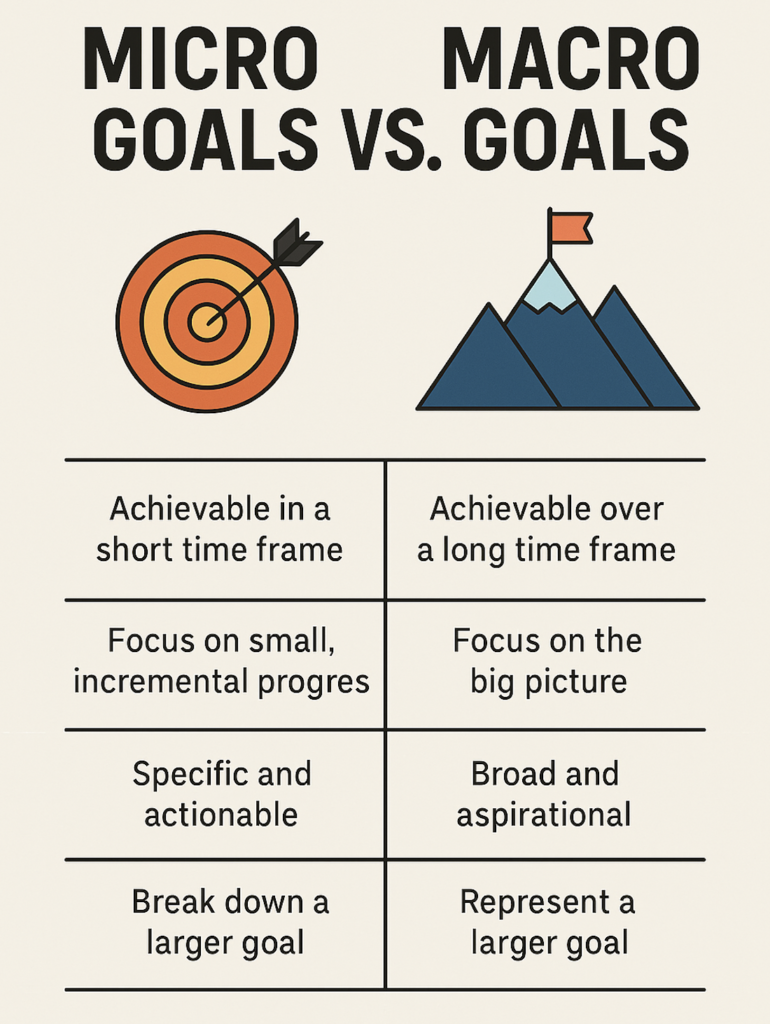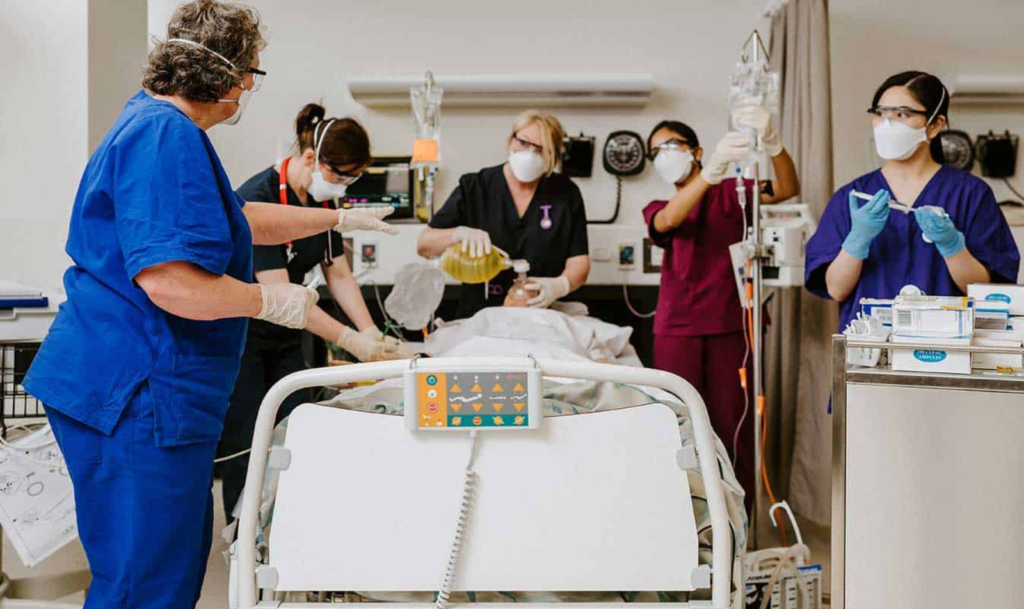Bustling wards, elusive consultants and endless sign-offs.
While some are absolutely thrilled by the prospect of starting a hospital placement, many are filled with anxiety over how to make it go well.
This comprehensive guide brings together insider advice from top medical students across the country to prepare you for this exciting journey – split into practical tips for before, during, and after your clinical placement!
Before your Placement
📚Do some Pre-reading
An excellent way to calm your nerves before facing a challenge is by having the confidence in yourself to see it through. One surefire way to boost this is to be as prepared as you can, mentally and physically.
Research and revise your specialty and any relevant procedures. This will put you ahead of the game when you arrive, helping you to follow conversations and ask insightful questions more easily. The simplest way to do this is using teaching material from your course, and below are some other excellent resources successful medics recommended to support your learning:
| Resource | Format | Cost | Description |
|---|---|---|---|
| Geeky Medics | Website & App | Free & Paid | OSCE checklists, videos, quizzes, practical guides |
| OSCE Stop | Website | Free & Paid | Concise OSCE guides, stations and question bank |
| Passmedicine | Website & App | Free for 12 months (Preclinical) & Paid (Clinical) | Question bank, high yield textbook/notes |
| Quesmed | Website & App | Paid | Another popular question bank & OSCE stations |
| Touch Surgery | App | Free | Surgical procedure simulations |
| Osmosis | YouTube & Website | Free (YouTube) & Paid (but many unis pay for a subscription) | Animated teaching videos – my personal favourite! |
| Zero to Finals | YouTube & Website | Free | Illustrated informative teaching videos and notes |
| The Noted Anatomist | YouTube | Free | In-depth anatomy explanations |
🔍Look up your Clinical Supervisor
- Is there a particular area of research they are involved in?
- Do they have a special interest in a certain disease, procedure or patient group?
A short browse can help you anticipate questions you might be asked on a ward round. If their interests align with yours, it’s a perfect opportunity to ask your own questions directly.
This can open doors to a wider conversation – potentially leading to other opportunities down the line. For example, on my first year hospital placement, after chatting with some consultants about their research, I felt comfortable approaching them on a project of my own, which led to my first acknowledgment on a research paper!
Familiarity makes a huge difference
🎯Decide on Personal Aims when on Placement
Many senior medical students and new doctors I spoke to wished they had made personal aims on every single one of their placements to elevate their experience.
My recommendation is to set two levels of goals – macro: for your overall achievements across the whole placement, and micro: the ‘small wins’ for each day that can get you to your macro goals. This sets an intentional tone for each day and increases fulfilment and satisfaction with the placement. Forget drifting around wards – each morning you enter equipped with both a timetable and a personal mission.

You could also organise goals by focus, e.g. sign-offs, skill development, or personal weaknesses.
However, don’t forget the basics! Especially if this is your first placement, don’t underestimate how tiring it can be. It goes without saying, but try your best to maintain good sleep hygiene, regular exercise, and batch cook/meal prep for the week to give yourself the best shot at each day. Also, always carry a small notebook and pen – jotting things down as you go not only helps you keep track in the moment, but gives you something concrete to review later in the day.
A well rested, well fed student learns faster and radiates enthusiasm
During your Placement
🧑⚕️Make Yourself Known
⏰Arrive 10 minutes earlier than when you think you need to be there – the extra breathing space is one of the most painless ways to upgrade your experience. You have the time to orient yourself without the pressure of the team in full swing, which is invaluable as every hospital is laid out differently.
Everyone will notice when you’re consistently engaged, and being there early means you won’t miss out on useful teaching moments or interesting discussions.
⚠️Keep in mind: If you are in a surgical specialty they may have patients in several different wards on different floors, and missing the start of the ward round may mean you miss the team entirely!
👋Introduce yourself at the right time – such as before a ward round or during a quiet moment. This ties into being early: it shows professionalism and awareness. A respectful, confident and well-timed introduction immediately builds rapport with staff; when people remember you, they are infinitely more likely to involve you in learning opportunities. First impressions stick!
⚠️Keep in mind: Interrupting during a ward round, handover or procedure can be disruptive, but if you wait too long, you might go the whole morning without being acknowledged and miss teaching opportunities – it’s a delicate balance. Every situation is unique: your own judgement is invaluable here.
✨Make sure your professionalism shines through your ward etiquette. Always dress smartly or wear scrubs, ensuring you are bare below the elbow. Importantly, remember to include and address the patient directly during hospital care. Never forget to introduce yourself to them where possible; always explain your role clearly before gaining verbal consent for a clinical interaction.
Maintain strict confidentiality at all times, whether it has been a minute or a year since you left the ward. It is easy to get caught up in impressing a consultant or following an interesting case, but remember that as a student you’ll probably have the most time to spend with a patient compared to any other point in your training. Your actions have a lasting impact on their experience, so you should act accordingly.
⚠️Keep in mind: You must display your ID at all times, but the conventional way of wearing lanyards is not advisable as it can dangle similarly to a tie or long hair. If possible, try to secure it onto your clothing or scrub pocket instead. If you want to keep wearing a watch to count your steps, try putting it on your ankle (at your own risk, step counts are still relatively accurate but other vital measurements may not be!)
🙌Maximise your Opportunities
All medics concurred that placement is what you make of it – which essentially means you only have some control over the nature of your opportunities, but full control over how you use them.
For example:
- If you are interested in surgery, take full advantage of surgical placement. Ask for the timetable in advance and scrub in to interesting cases as much as possible to get involved.
- Follow up on a patient you saw during a ward round. The difference even a week can make is sometimes genuinely astonishing, and as a student you are in the privileged position of being able to speak to patients as much as they can tolerate you. Make use of this! This is the most effective way to improve your bedside manner and one of the only ways you can really do so until you actually start seeing patients yourself.
- Be reliable – if you are trusted to help out/complete a task, make sure you do this to the best of your ability and ask for help right away if you are unsure. It seems obvious, but in this setting dependability will always beat inconsistent perfection.
🌟Proactivity & Engagement Tips
- 📍 Define logistics early – clarify your placement location, schedule, and requirements. If a change in ward, specialty, or type of placement would benefit your learning, don’t be afraid to request it.
- 🚗 Claim what you’re entitled to – travel reimbursements and student support schemes exist for a reason; accessing them ensures your focus stays on learning rather than logistics.
- 🚑 Seek out “by-request” opportunities – Some opportunities only come if you actively seek them out e.g. shadowing paramedics, or following a patient journey across specialties. These often require initiative but are hugely rewarding.
- ☕ Bring something for the team – if you’re with the same group for a long stretch, a small gesture like sharing cake, snacks, or offering them a cup of tea can help build a friendly working environment which can really make a difference.
- 🩺 Define your learning goals – let the ward round lead (or consultant) know you’re keen to hear their thought process around diagnoses, investigations, and management. It turns a passive morning into an active learning session.
- ❓ Ask questions – even if it feels daunting in front of the team, questions show curiosity and engagement. Most clinicians appreciate students asking, and your peers will often be grateful you voiced what they were also thinking. No question is stupid. People will like you more for asking and will respond in kind, compared to you being quiet for the whole session.
For any placement, show genuine curiosity by reviewing key principles beforehand and framing queries that build on what you already know. That way, you demonstrate respect for your seniors’ time and make every teaching moment count. Read on for more golden nuggets…
💉Practice your Skills
Once you have completed the simulation teaching/training for a skill, this is only half of the work. True competence lies in carrying out these skills safely and confidently in a clinical setting, which is virtually impossible to perfect without practicing! It feels scary at first, but my execution exponentially improved when I took the initiative to find ways to practise on placement, and many of the doctors I spoke to said this is what sets some students apart when it comes to clinical years.
Especially for junior students: every day there are routine observations (e.g. NEWS2 scoring) that need to be taken that you could help with – it may even be one of your sign-offs.
You won’t have allotted time for this per se, but by familiarising yourself with your ward you will learn things like when the bloods are taken each day, or which patients are new and still need histories taking etc. By volunteering to do these things and practicing under supervision, your fluency will improve massively. There are many apps that can help with tasks on the wards, some examples are below but your resident doctors are also great sources of information on what to use to make your life easier.
| App | Description | Why It’s Useful |
|---|---|---|
| MDCalc Medical Calculator | Clinical scoring systems & risk calculators | Instantly calculate scores like CHA₂DS₂-VASc, Wells, CURB-65 – saves time on ward rounds |
| Eponyms (Android / iOS) | Definitions of medical eponyms | Great for quickly checking obscure terms a consultant throws at you |
| BNF / BNFC | UK drug formulary | Essential for prescribing, doses, and contraindications |
| PEPID | Emergency & clinical decision support | More US-oriented but has excellent drug & interaction database |
| iResus | Resuscitation Council UK algorithms | Official ALS/BLS algorithms & emergency checklists |
| TOXBASE | UK poisons database | NHS-standard toxicology guidance for overdoses & poisonings |
| Induction | Hospital contact directory | Internal bleep numbers, switchboard, and departmental contacts |
| Microguide | Local antimicrobial guidelines | Trust-specific antibiotic policies and infection guidance |
- Get sign-offs early to prevent panic and be able to immerse yourself in the learning.
- If your placement is short (e.g. two weeks) I recommend flagging down your clinical supervisor to arrange a time to do the end of placement formalities within the first couple of days. This screams ’I’m super organised’ which leaves a great impression and it makes life easier for the team too!
- For longer placements, you can sometimes plan ahead to match sign-offs with rotations where you are most likely to get them painlessly.
Once they’re out of the way, you’ll have more time to practice skills and explore what you find the most useful – without the pressure of chasing them at the last minute.
After Your Placement
📝Learning Through Reflection
Placements are most valuable when you reflect on and consolidate what you’ve seen.
- Keeping a short notes page or journalling can help reinforce introspection and emotional resilience, which are hugely undervalued and fundamental qualities of a successful doctor. After a memorable patient interaction or clinical experience, take 5 minutes to note down:
- What happened
- Why you want to remember it – details
This can be anything: your feelings, any challenges you faced, any strengths you showed – this part is crucial for reflection. It’s important to celebrate wins as well as learn from losses.
- Learning points – what to do next time
This simple routine builds self-awareness and helps hone your clinical skills. You will also have to write some kind of reflective piece at the end of your placements for some sign-offs, so getting into this habit early will serve you well. Knowing your strengths and weaknesses in this area will also help you hit the ground running with OSCEs.
💎Consolidating Clinical Gems
- Alongside reflection, record key clinical gems. You accumulate so much practical knowledge from placement that books could never teach – here are some ways to make it stick:
- Writing quick self-test questions/Anki cards
- Discussing cases with peers or supervisors
- Incorporating it into reflective journaling
- Doing some further reading on the condition/situation/presentation etc. to assimilate it with your ‘book knowledge’
Make sure to maintain patient confidentiality at all times while doing this.
By combining reflection with follow-up learning, placements become a cycle of observation, feedback, and steady improvement.
🧨Rapid Fire FAQs
We asked some fourth year medical students at Imperial the following common questions…
💭What if my Clinical Supervisor is absent or unavailable?
It is understandable that some circumstances are unavoidable and can result in you having less time with your consultant. They have signed up to be your clinical supervisor so they should be able to give you some time, try to find them as soon as your placement starts and arrange a time to check in again or complete sign-offs to avoid panic towards the end. If you have not seen them at all during your placement and nobody has informed you of how you can get your sign-offs, contact your medical school.
💭How do I avoid feeling like I’m getting in the way?
It’s okay and very common to feel like this at times. As long as you are eager to learn and with supervised practice your abilities will shine. Imposter syndrome is an epidemic among medics, but everyone around you was once in your shoes: you made it this far for a reason.
As you become a familiar, helpful face on the ward, the health professionals around you will be much more inclined to spend their time teaching you. If you show commitment and enthusiasm, their guidance will certainly help you grow your confidence.
💭What are things you wish someone told you before placement?
- Make a concerted effort to build rapport with the whole team; not just the consultants. A lot of the time the ward nurses and resident doctors give you your most valuable learning opportunities (and sign-offs!)
- Stay as long as you can (within reason) – a lot of the most interesting stuff happens after 5pm, especially in acute medicine.
- Take as many histories as you can early on – GP placement is great for this – you learn so much by talking to patients and it is obvious to an examiner or a patient when you are not confident with this.
✨Finally, The #1 Thing You Need to Hear:
Be proactive, be proactive, be proactive! Take ownership of your learning, don’t just wait for formal teaching. Speak to the resident doctors – they are the closest to your stage and are often more sympathetic towards students. Some of the best teaching I have received is from kind people taking me under their wing, which only happens when you enable it. You will be surprised by how much more you can gain if you just ask for it. If you made it to the end of this guide, you’re already winning. Good luck!
With sincere thanks to Alwin Paul, Daniel Sherkawi, and Hasan Zaidi for their valuable advice when writing this article.
Thanks for reading. If you have any comments or suggestions, please feel free to share them below and we’ll get back to you as soon as we can!





